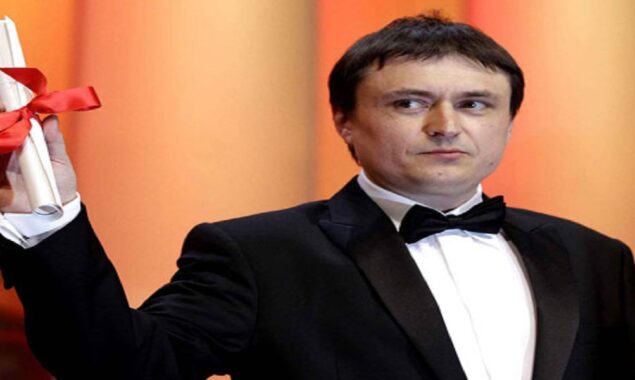
The Cannes favourite returns to depict the horrors of ‘human animals.’
Cristian Mungiu, one of Eastern Europe’s most acclaimed filmmakers, returns to the Cannes Film Festival with a dark tale about how little it takes for people to turn on their neighbours.
His heartbreaking Ceausescu-era drama about illegal abortion, “4 Months, 3 Weeks, and 2 Days,” won the top prize at the world’s most prestigious film festival in 2007.
Mungiu was also nominated for best screenplay for “Beyond the Hills” in 2012 and best director for “Graduation” in 2016.
His new film, “RMN,” is up for the Palme d’Or yet again, and the 54-year-old told AFP that it explores the collapse of hopes for a new era of peace following the Cold War’s end.
“I try to speak about human nature, the state of the world today, and the sense that we have today that things aren’t going in the right direction,” he said.
“Things are coming to a close, and everybody is nervous,” he said, referring to the ongoing conflict in Ukraine.
– ´Capable of anything´ –
The Romanian abbreviation for an MRI is RMN, and Mungiu claims that scanning the brain can reveal fascinating secrets about how humans are wired.
The film delves into the fears of a multi-ethnic community in Transylvania, a historical crossroads of migration and competing empires that has resulted in Romanian, Hungarian, and German speakers coexisting to this day.
It is based on a story that was widely covered in Romanian media in 2020, when a village in Transylvania protested the hiring of two Sri Lankans by the local bakery.
In the film, foreign men are recruited to work in a bread factory that is dependent on EU grants and offers minimum-wage jobs that have long gone unfilled because the pay is too low for locals.
A manager attempts to look after the dislocated Sri Lankans, who do not speak any of the local languages and are having difficulty integrating.
A violent attack results in clashes with the police, the village priest, and, finally, a town meeting during which hysterical fears about outsiders are expressed.
Mungiu stated that he hoped to shine a light on the “instincts and cruelty that are deep within us as human animals and to see that people who are neighbours today are capable of anything tomorrow — raping, killing, and torturing someone else simply because someone told me this is the enemy.”
– ´A movement´ –
The Guardian described the film as “seriously engaged with the dysfunction and unhappiness in Europe that goes unreported and unacknowledged.”
According to the US film website IndieWire, it is another “moral thriller” from Mungiu that “pulls harder and harder at the tension between complex socioeconomic forces and the simple human emotions they inspire.”
Mungiu is a member of Romania’s New Wave of filmmakers who have won awards at international film festivals over the last two decades for documenting the realities of the post-communist transition.
He admitted at Cannes that those critically acclaimed films were far less popular at home.
“(Romanians) don’t really like what we do — they don’t really understand why someone else likes it,” he explained.
“But it’s really important to us that we were able to create some sort of movement that is now complex enough — there are a wide range of filmmakers expressing themselves.”
“At some point, I believe it will be recognised as something good that we did for Romanian culture.”
On May 28, the Palme d’Or will be awarded.
Read More News On
Catch all the Entertainment News, Breaking News Event and Latest News Updates on The BOL News
Download The BOL News App to get the Daily News Update & Follow us on Google News.




